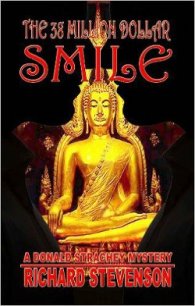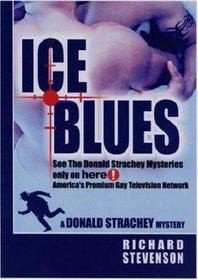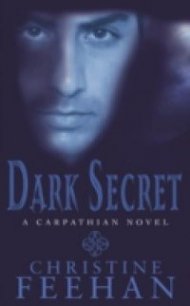Congo - Crichton Michael (книги регистрация онлайн бесплатно .TXT) 📗
He punched the buttons.
It didn’t help. Crossing the Liko was slower. He tried trekking through the Goroba Valley, even though it was probably too hazardous to execute.
PROPOSED ROUTING EXCESSIVELY HAZARDOUS
“Great minds think alike,” Munro said, smoking his cigar. But it started him wondering: were there other, unorthodox approaches they had overlooked? And then he had an idea.
The others wouldn’t like it, but it might work..
Munro called the logistics equipment list. Yes, they were equipped for it. He punched in the routing, smiling as he saw the line streak straight across Africa, within a few miles of their destination. He called for outcomes.
PROPOSED ROUTING UNACCEPTABLE.
He pressed the override button, got the data outcomes anyway. It was just as he thought-they could beat the consortium by a full forty hours. Nearly two full days!
The computer went back to the previous statement:
PROPOSED ROUTING UNACCEPTABLE / ALTITUDE FACTORS / HAZARDS TO PERSONNEL EXCESSIVE / PROBABILITY SUCCESS UNDER LIMITS /
Munro didn’t think that was true. He thought they could pull it off, especially if the weather was good. The altitude wouldn’t be a problem, and the ground although rough would be reasonably yielding.
In fact, the more Munro thought about it, the more certain he was that it would work.
9. Departure
THE LITTLE FOKKER S-144 PROP PLANE WAS PULLED up alongside the giant 747 cargo jet, like an infant nursing at its mother’s breast. Two cargo ramps were in constant motion as men transferred equipment from the larger plane to the smaller one. Returning to the airfield, Ross explained to hot that they would be taking the smaller plane, since the 747 had to be debugged, and since it was “too large” for their needs now.
“But the jet must be faster,” Elliot said.
“Not necessarily,” Ross said, but she did not explain further.
In any case, things were now happening very fast, and Elliot had other concerns. He helped Amy aboard the Fokker, and checked her thoroughly. She seemed to be bruised all over her body-at least she complained that everything hurt when he touched her-but she had no broken bones, and she was in good spirits.
Several black men were loading equipment into the airplane, laughing and slapping each other on the back, having a fine time. Amy was intrigued with the men, demanding to know What joke? But they ignored her, concentrating on the work at hand. And she was still groggy from her medication. Soon she fell asleep.
Ross supervised the loading, and Elliot moved toward the rear of the plane, where she was talking with a jolly black man, whom she introduced as Kahega.
“Ah,” Kahega said, shaking Elliot’s hand. “Dr. Elliot. Dr. Ross and Dr. Elliot, two doctors, very excellent.”
Elliot was not sure why it was excellent.
Kahega laughed infectiously. “Very good cover,” he announced. “Not like the old days with Captain Munro. Now two doctors-a medical mission, yes? Very excellent. Where are the ‘medical supplies’?” He cocked an eyebrow.
“We have no medical supplies.” Ross sighed.
“Oh, very excellent, Doctor, I like your manner,” Kahega said. “You are American, yes? We take what, M-16s? Very good rifle, M-16. I prefer it myself.”
“Kahega thinks we are running guns,” Ross said. “He just can’t believe we aren’t.”
Kahega was laughing. “You are with Captain Munro!” he said, as if this explained everything. And then he went off to see about the other workmen.
“You sure we aren’t running guns?” Elliot asked when they were alone.
“We’re after something more valuable than guns,” Ross said. She was repacking the equipment, working quickly. Elliot asked if he could help, but she shook her head. “I’ve got to do this myself. We have to get it down to forty pounds per person.”
“Forty pounds? For everything?”
“That’s what the computer projection allows. Munro’s brought in Kahega and seven other Kikuya assistants. With the three of us, that makes eleven people all together, plus Amy-she gets her full forty pounds. But it means a total of four hundred eighty pounds.” Ross continued to weigh packs and parcels of food.
The news gave Elliot serious misgivings. The expedition was taking yet another turn, into still greater danger. His immediate desire to back out was checked by his memory of the video screen, and the gray gorilla like creature that he suspected was a new, unknown animal. That was a discovery worth risk. He stared out the window at the porters. “They’re Kikuyu?”
“Yes,” she said. “They’re good porters, even if they never shut up. Kikuyu tribesmen love to talk. They’re all brothers, by the way, so be careful what you say. I just hope Munro didn’t have to tell them too much.”
“The Kikuyu?”
“No, the NCNA.”
“The NCNA,” Elliot repeated.
“The Chinese. The Chinese are very interested in computers and electronic technology,” Ross said. “Munro must be telling them something in exchange for the advice they’re giving him.” She gestured to the window, and Elliot looked out. Sure enough, Munro stood under the shadow of the 747 wing, talking with four Chinese men.
“Here,” Ross said, “stow these in that corner.” She pointed to three large Styrofoam cartons marked AMERICAN SPORT DIVERS, LAKE ELSINORE, CALIF.
“We doing underwater work?” Elliot asked, puzzled.
But Ross wasn’t paying attention. “I just wish I knew what he was telling them,” she said. But as it turned out, Ross needn’t have worried, for Munro paid the Chinese in something more valuable to them than electronics information.
The Fokker lifted off from the Nairobi runway at 14:24 hours, three minutes ahead of their new timeline schedule.
During the sixteen hours following Amy’s recovery, the ERTS expedition traveled 560 miles across the borders of four countries-Kenya, Tanzania, Rwanda, and Zaire-as they went from Nairobi to the Barawana Forest, at the edge of the Congo rain forest. The logistics of this complex move would have been impossible without the assistance of an outside ally. Munro said that he “had friends in low places,” and in this case he had turned to the Chinese Secret Service, in Tanzania.
The Chinese had been active in Africa since the early 1960s, when their spy networks attempted to influence the course of the Congolese civil war because China wanted access to the Congo’s rich supplies of uranium. Field operatives were run out of the Bank of China or, more commonly, the New China News Agency. Munro had dealt with a number of NCNA “war correspondents” when he was running arms from 1963 to 1968, and he had never lost his contacts.
The Chinese financial commitment to Africa was considerable. In the late 1960s, more than half of China’s two billion dollars in foreign aid went to African nations. An equal sum was spent secretly; in 1973, Mao Tse-tung complained publicly about the money he had wasted trying to overthrow the Zaire government of President Mobutu.
The Chinese mission in Africa was meant to counter the Russian influence, but since World War lithe Chinese bore no great love for the Japanese, and Munro’s desire to beat the Euro-Japanese consortium fell on sympathetic ears. To celebrate the alliance, Munro had brought three grease-stained cardboard cartons from Hong Kong.
The two chief Chinese operatives in Africa, Li T’ao and Liu Shu-wen, were both from Hunan province. They found their African posting tedious because of the bland African food, and gratefully accepted Munro’s gift of a case of tree ears fungus, a case of hot bean sauce, and a case of chili paste with garlic. The fact that these spices came from neutral Hong Kong, and were not the inferior condiments produced in Taiwan, was a subtle point; in any case, the gift struck exactly the proper note for an informal exchange.


![[Magazine 1968-012] - The Million Monsters Affair - Davis Robert Hart (серия книг .txt) 📗](/uploads/posts/books/56864/56864.jpg)

